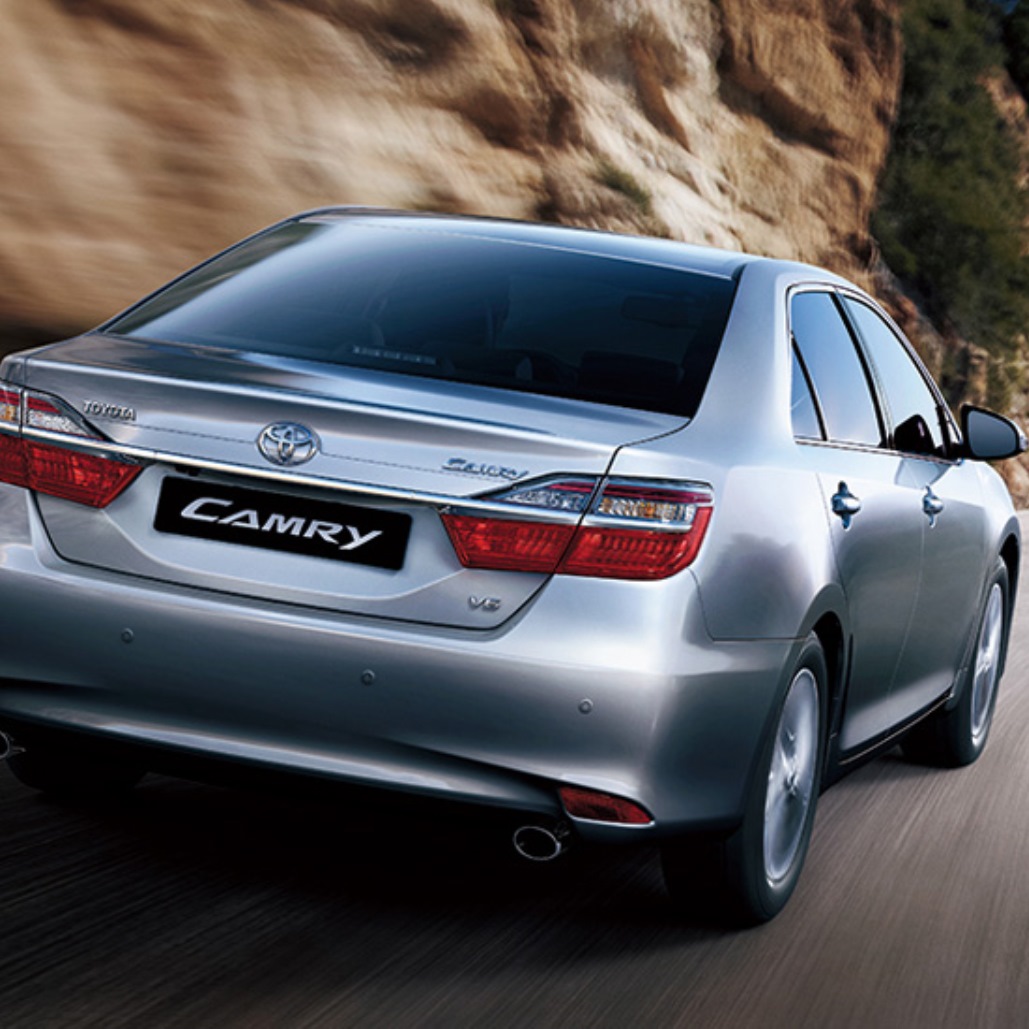Cars and Drivers
Toyota Warns US Workers: Build Camry for Less, or Else

Published:
Last Updated:

Toyota Motor Corp. (NYSE: TM) opened its first U.S. plant in 1988 in Georgetown, Kentucky. The plant’s 8,200 employees produced 500,766 vehicles last year, most of which were the company’s best-selling Camry sedan. Now Toyota is threatening to move Camry production unless the plant quickly cuts costs.
According to a video obtained and viewed by Bloomberg News, the plant’s president downplayed the threat by saying that Toyota isn’t planning to close the plant, “But all of this is on the assumption that we can make as much progress in cost reduction and efficiency as we’ve made in quality and safety.”
The video made the point that Toyota could build a Camry in Japan, ship it to Kentucky, and sell it for a bigger profit than it could by selling a car built in the state.
Toyota also builds Camrys in Japan at its Tsutsumi plant, which was the company’s first factory to implement its new global manufacturing scheme that makes it cheaper to build Camrys in Japan. The company has already announced an investment to implement the new manufacturing process in Georgetown.
There may be more here than meets the eye. On his recent trip to Asia, President Trump claimed that Toyota and other Asian carmakers needed to produce more of the vehicles in the United States that they sell in the United States. According to a report from the Japan Automobile Manufacturers Association published last month, of nearly 4 million vehicles made by Asian carmakers in the U.S. last year, more than 400,000 were exported for sale globally.
The company is also scratching around for savings in existing operations to help fund a massive research and development effort in electrification and artificial intelligence.
And then there’s the unionization effort at the Georgetown plant. A labor professor at the University of California, Berkeley, said, “With this message Toyota is trying to make the choice not between joining a union or not, but between voting for a union or having a job.”
A years-long effort to unionize a Nissan plant in Tennessee ended in August with a vote against the union.
Toyota claims the unionization effort played no role in getting the message out to Georgetown’s workers. The message, the company says, is that Toyota will be in Kentucky for a long time but that the plant needs to be cost competitive.
Credit card companies are pulling out all the stops, with the issuers are offering insane travel rewards and perks.
We’re talking huge sign-up bonuses, points on every purchase, and benefits like lounge access, travel credits, and free hotel nights. For travelers, these rewards can add up to thousands of dollars in flights, upgrades, and luxury experiences every year.
It’s like getting paid to travel — and it’s available to qualified borrowers who know where to look.
We’ve rounded up some of the best travel credit cards on the market. Click here to see the list. Don’t miss these offers — they won’t be this good forever.
Thank you for reading! Have some feedback for us?
Contact the 24/7 Wall St. editorial team.